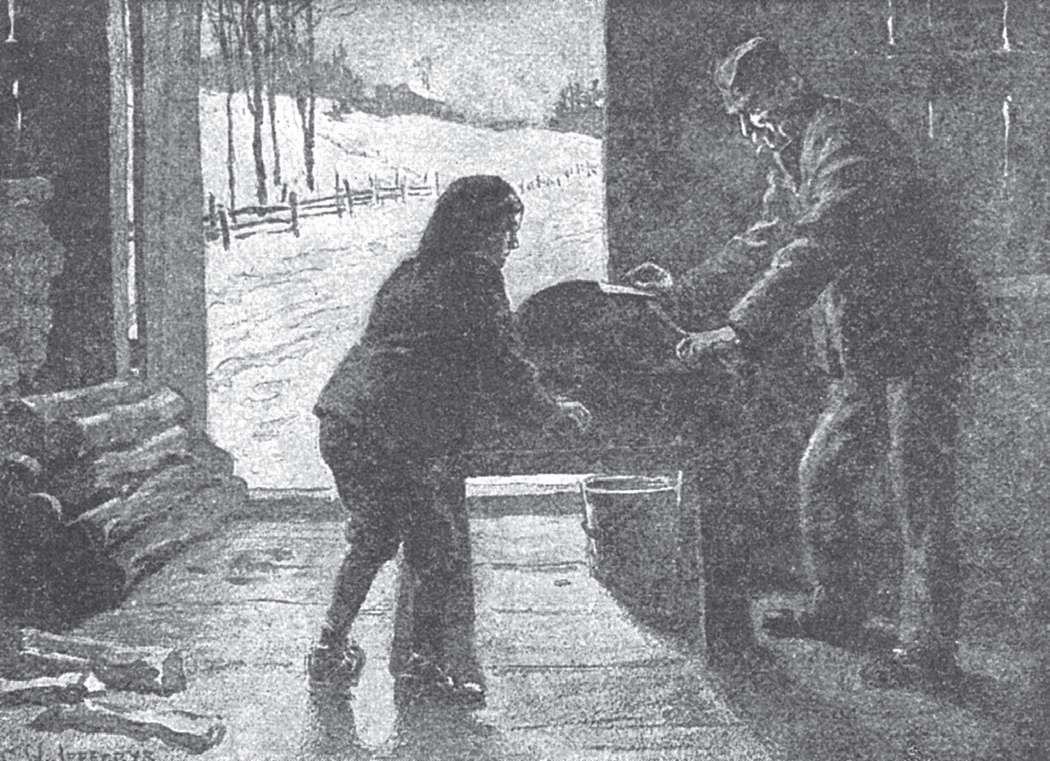





ONEcold winter morning, when I was a little boy, I met, on my way to school, a smiling man with an axe on his shoulder.
“My pretty boy,” said he, “has your father a grindstone?”
“Yes, sir,” said I.
“You are a fine little fellow,” said the man. “Will you letme grind my axe on it?”
It pleased me very much to be called a fine little fellow;so I said: “Oh, yes, sir; it is down in the shop.”
“And will you, my little man,” said he, patting me on the head, “get a little hot water?”
Now, how could I refuse? He was such a smiling, pleasant man! As fast as I could, I ran into the house and brought him a whole kettleful.
“How old are you? And what’s your name?” he asked. But, before I could answer, he went on: “You are one of the finest lads I ever saw; will you just turn a few minutesfor me?”
Tickled with his praise, like a little fool, I went to work. It was a new axe, and I toiled and tugged and turned till I was tired enough to drop.
The school bell rang, but I could not get away; it rang again, and there I was still, turning away at the grindstone. My hands were blistered and my shoulders ached.
At last the axe was ground. What a sharp, keen edge it had!
Then I looked up, expecting thanks. But the man suddenly turned toward me with a frown, and said: “You little rascal, you have played truant! Be off, now; scud away to school, or you’ll catch it!”
It was hard enough to turn a heavy grindstone so long, and on such a cold day; but to be called a “little rascal” for doing it was too much. These harsh words sank deep into my boyish mind, and often have I thought of them since.
Boys and girls, whenever you meet a flatterer, beware ofhim. You may be pretty sure that he has “an axe to grind,” and wants you to turn the grindstone.
— FRANKLIN